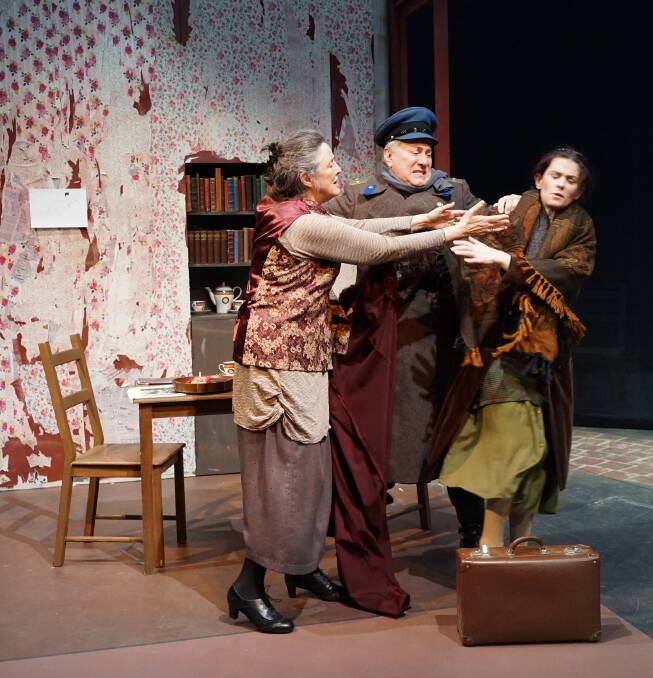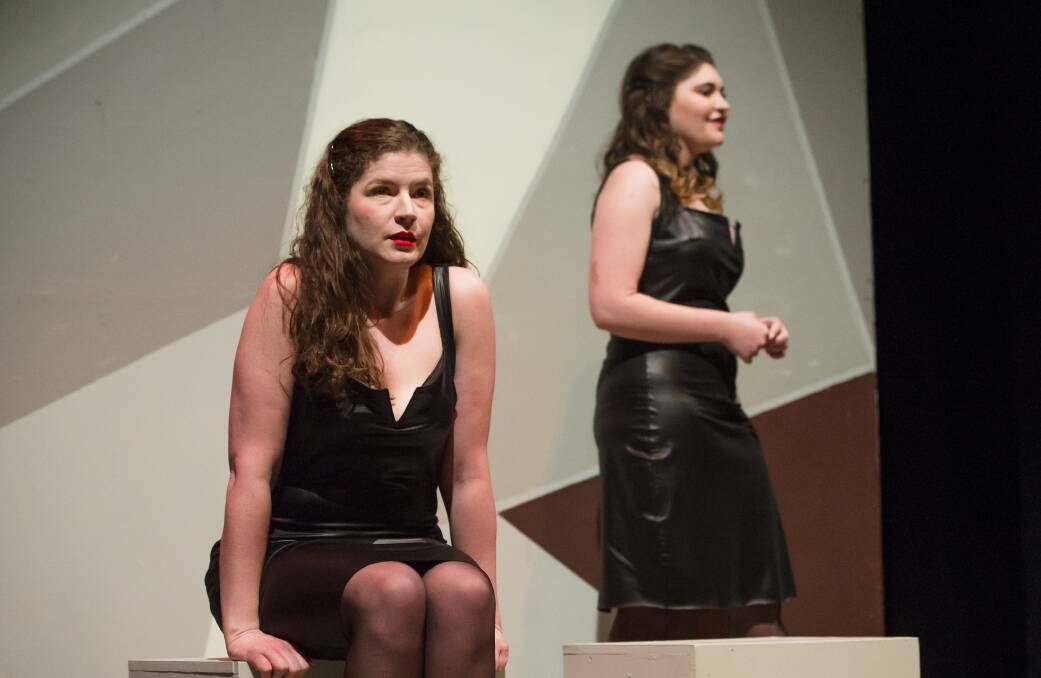The Woman in the Window. By Alma De Groen. Directed by Liz Bradley. Canberra Repertory Society. Theatre 3, Acton. Until September 21. Bookings: 62571950 or canberrarep.org.au.
Subscribe now for unlimited access.
$0/
(min cost $0)
or signup to continue reading

Alma De Groen's The Woman in the Window was first performed in 1998 but it feels eerily and disturbingly contemporary in the strong hands of director Liz Bradley and a cast that knows how to make all roles count.
At its centre is the real life of Russian poet Anna Akhmatova (Karen Vickery). Under Stalin in the 1950s, she's forbidden to write. So her companion Lili Kalinovskaya (Lainie Hart) must memorise the poems before they are burned. And Anna has to show herself to the police at the window twice a day.
In the future in Australia a young woman Rachel (Zoe Swan) lives a regimented conformist life as a sexual servant under a totalitarian, computerised regime. Miz (Alex McPherson) tells her what to think and how to think it. A friend, Maren (McPherson in an adept doubling) shows signs of independence and disappears. Rachel's own growing pursuit of poetry puts her in great danger. Ironically, she is paired with the somewhat shallow Sandor (Michael Cooper), who is called a poet but only studies the phenomenon and does not create it.
In both worlds there are enforcers and betrayers.
The two stories never meet in a literal sense but the juxtaposition in this engrossing production is powerfully done. Michael Sparks's set manages to marry the run down textures and strictures of Stalin's Leningrad with a touch of Metropolis to suggest the Australian future dystopia. Anna Senior's subtly coloured costume designs, Neville Pye's sound and Chris Ellyard's selective lighting are excellent in support.
The smaller roles all have an individuality about them that deepens the sense of the two different worlds. Whether it's the sense of threat from the Soviet police or the betrayals in Rachel's world this production rises to De Groen's perceptions and writing. Further, the audience is compelled to do some thinking about women and the right to have a voice.

There are some compelling moments. There's the distressed bluster of Brown's Tusya caught out in her spying and the freshness of Swan as Rachel discovering a new freedom. The blunt bravery of Hart's Lili under questioning is distressing and moving.
But it's Vickery as Anna, standing at that window, complying but rebelling, who carries the focus superbly. Angular and angry but resigned to having to be cunning, she carries the sense of what it is to be a thinker and a writer in ages when that has been deemed unimportant. Or too important not to be repressed.
This is a thoughtful, unsettling production that deserves full houses.

